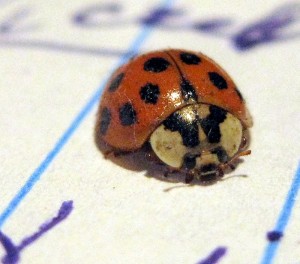I have written numerous posts advocating that because humans are animals they should be recognized as such (for example, see here , here, here , and here). For zoologists and others who study animals, it is obviously true that we are animals. We do hundreds of things that the other mammals do, plus a few extra. You can see it every day when you eat, breathe, emote, poop, become fatigued and fall asleep. Yet millions of Americans are horrified by the thought that human beings are animals.
Consider that we aren’t simply animals. Our species is a carefully defined type of animal. We are apes. Frans de Waal explains:
Darwin wasn't just provocative in saying that we descend from the apes—he didn't go far enough . . . We are apes in every way, from our long arms and tailless bodies to our habits and temperament.
If you want even more detail on what type of animal humans are (we are in the ape sub-division of primates),
watch this brisk video by Aron-ra.
Again, this sort of information is really disturbing to many people, especially religious conservatives.
So why don't I simply leave religious conservatives alone? Why do I persist on standing on rooftops and proclaiming this message that humans are animals? Why don't I just whisper this sort of information only to my closest of friends: "Pssst. Human beings are animals." Why don't I just let it be, and keep it all to myself? What could possibly be at stake that I feel compelled to spread the word that human beings are animals? I was in the process of assembling my own list when I just happened to read Chapter 12 of Mark Johnson's new book,
The Meaning of the Body: Aesthetics of Human Understanding.
Johnson is well known for his work with metaphors and embodied cognition with George Lakoff. Chapter 12 of his new book contains a section that leaped out at me: "The Philosophical Implications of the Embodied Mind." In that short section, Johnson sets forth nine reasons why it really and truly
matters for people to acknowledge that they are animals and to fully accept that their minds are embodied, not free-floating entities independent of physical laws.
Johnson's biggest target is the "objectivist theory of meaning," the idea that meaning "gets defined without any connection to the experience of the creature (i.e., the human) for whom the words are meaningful. Johnson points out that those who follow the objectivist theory of meaning believe that words and sentences somehow "carry" meaning without even trying to explain how words and sentences ever come to acquire meaning. It should send up immediate red flags that the predominate theory of meaning relies on floating thoughts, a theory of meaning that is not biologically anchored. Reacting to (and rejecting) this objectivist approach, Mark Johnson premises his analysis "with a mind that is not separate from or out-of-ongoing-contact with its body and its world." His worldview includes
a specific definition of body and his impressive list of why it matters for human beings to take seriously "the embodiment of mind and meaning." Here are those reasons (I will be borrowing liberally from Johnson's book with these descriptions, beginning at page 279):

